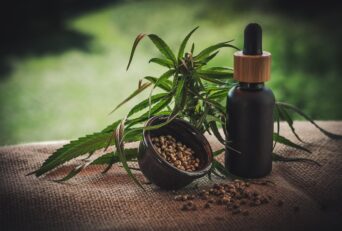Women navigating the challenging substance abuse recovery journey often seek holistic and alternative methods to support their unique needs. This article explores ten distinct yet interconnected strategies geared towards women’s recovery. From functional medicine to alternative therapies, we shed light on innovative approaches to enhance physical, mental, and emotional well-being during recovery.
Table of Contents
Nutritional Nourishment for Women in Recovery
Balanced nutrition serves as a cornerstone of women’s recovery, offering sustenance and a potent tool for healing. The importance of tailored dietary plans rich in essential nutrients cannot be overstated. These plans help alleviate cravings and boost energy and mood, contributing to a sense of well-being essential for successful recovery.
Functional medicine practitioners specializing in holistic health play a crucial role in recovery. They assess individual needs, considering the unique physiological and biochemical factors that affect women. Functional medicine views each woman as a unique entity and tailors nutrition plans to address specific imbalances, such as hormonal fluctuations and compromised liver function, which often accompany substance abuse.
Addressing nutritional deficiencies can aid in reducing the severity of withdrawal symptoms, making the early stages of recovery more manageable. Proper nutrition supports the repair and regeneration of damaged tissues, replenishes vital vitamins and minerals, and helps stabilize blood sugar levels, reducing the likelihood of mood swings and relapses.
Adopting a balanced and nutritious diet can be transformative for women in recovery. It gives them control and self-care, two elements often eroded during addiction. It’s not just about nourishing the body; it’s about nurturing the spirit and reinforcing the belief that a healthier, happier life is possible. Incorporating whole foods, lean proteins, fresh fruits and vegetables, and adequate hydration can empower women in their journey toward sobriety. By embracing proper nutrition, women can rebuild their physical and mental health, strengthen their resolve, and take a significant step towards lasting recovery.
Mind-Body Harmony: Yoga and Meditation for Women in Sobriety
Yoga and meditation practices offer women in recovery profound tools for holistic healing and self-discovery. These disciplines extend beyond physical fitness; they foster emotional resilience, mindfulness, and self-compassion, making them indispensable allies on the path to sobriety. For women facing the challenges of addiction recovery, yoga provides a sanctuary where they can reconnect with their bodies and emotions. Through gentle movement, breathwork, and postures, yoga allows women to release physical tension and stored emotional trauma. Moreover, it empowers them to regain control over their bodies, promoting a sense of strength and self-worth that might have been eroded by addiction.
Meditation, another vital component of mind-body healing, helps women develop essential coping skills. By cultivating mindfulness, individuals in recovery can observe their thoughts and emotions without judgment, reducing the power of cravings and triggers. Meditation also fosters emotional regulation, which is particularly beneficial during the emotional ups and downs of the recovery journey.
Herbal Allies on the Path to Sobriety
Traditional herbal remedies offer women in recovery a natural and holistic approach to addressing their unique challenges. These natural alternatives provide a wide array of benefits, from managing hormonal fluctuations to alleviating anxiety and sleep disturbances, without pharmaceutical solutions.
- Hormonal Balance: Women often experience hormonal imbalances that can be exacerbated by substance abuse and recovery. Certain herbs like chasteberry and dong quai can help regulate hormones, relieving mood swings and physical discomfort.
- Anxiety Reduction: Anxiety is a common companion during recovery, and herbal remedies like kava kava, passionflower, and valerian root can be incredibly effective in soothing nervousness and promoting relaxation.
- Sleep Support: Adequate sleep is crucial for recovery, but many women struggle with insomnia. Herbs such as chamomile, lavender, and lemon balm can promote restful sleep without the side effects of sleep medications.
- Craving Control: Some herbs, like milk thistle and kudzu root, have shown promise in reducing substance cravings. These can be valuable tools for managing the strong urges often accompanying recovery.
- Liver Support: The liver plays a critical role in detoxifying the body. Milk thistle and dandelion root are known for their liver-supporting properties, aiding in removing toxins and promoting overall well-being.
- Stress Relief: Stress can be a significant trigger for relapse. Adaptogenic herbs such as ashwagandha and rhodiola can help the body adapt to stress, reducing its negative impact on physical and mental health.
Women can work with holistic practitioners specializing in herbal medicine to create individualized treatment plans tailored to their unique needs. These herbal allies can complement other aspects of recovery, promoting overall wellness and helping women regain control of their lives without relying solely on pharmaceutical interventions.
Empowering Women: Dealing with Substance Abuse Issues
Addressing the underlying causes of substance abuse is fundamental to women’s recovery. While holistic approaches can be immensely beneficial, it’s crucial to acknowledge that seeking professional treatment, such as at an alcohol rehab center, may be necessary if the struggles become overwhelming and unmanageable.
- Trauma-Informed Care: Many women who grapple with addiction have experienced trauma in their lives. Trauma-informed therapy provides a safe space for women to explore past traumatic experiences and learn coping strategies. Understanding the link between trauma and addiction is pivotal for recovery.
- Counseling and Therapy: Individual and group therapy sessions offer women valuable opportunities to share their experiences, receive support, and develop crucial life skills. Therapists trained in addiction and co-occurring disorders can help women navigate the emotional challenges of recovery.
- Family Dynamics: Substance abuse often impacts family relationships. Family therapy and support can be essential in rebuilding trust and fostering healthier communication, ensuring women have a solid support system during their recovery journey.
- Co-Occurring Disorders: Many women with addiction also struggle with co-occurring mental health disorders like depression or anxiety. Dual diagnosis treatment addresses both substance use and mental health issues simultaneously, increasing the chances of successful recovery.
- Medication-Assisted Treatment: Medication-assisted treatment (MAT) may be necessary to manage cravings and withdrawal symptoms. MAT can be a crucial component of a comprehensive recovery plan and should be supervised by medical professionals.
- Support Groups: Women’s support groups, such as Women for Sobriety or SMART Recovery, offer a sense of community and shared experience. These groups can be instrumental in building resilience and providing a non-judgmental space for women to discuss their struggles.
While holistic and alternative approaches play a significant role in women’s recovery, it’s vital to recognize when professional help is needed. If the challenges of substance abuse become too overwhelming, seeking treatment at an alcohol rehab center may provide the structure and expertise necessary to achieve lasting sobriety. Empowering women in recovery means acknowledging when additional support is required and taking proactive steps to ensure their well-being and success on the path to sobriety.
The Gut-Brain Connection in Women’s Recovery
Understanding the gut-brain connection is key for women on the path to recovery. Functional medicine offers insights into how gut health influences mood, cravings, and overall well-being. By addressing gut imbalances, women can enhance their resilience against triggers often encountered during recovery.
Holistic Therapies: Massage and Energy Healing for Women
Holistic therapies like massage and energy healing provide women with nurturing self-care practices. These modalities alleviate physical tension, promote relaxation, and release emotional trauma. By connecting with their bodies, women can feel renewed empowerment and self-worth.
Aromatherapy and Essential Oils in Women’s Recovery
The soothing effects of aromatherapy and essential oils can be particularly beneficial for women in recovery. These natural scents promote emotional well-being, relaxation, and stress reduction, offering women a unique way to address their specific needs during this critical time.
Acupuncture: Finding Balance and Healing
Acupuncture, rooted in traditional Chinese medicine, can be a valuable resource for women in recovery. It helps alleviate withdrawal symptoms, reduce stress, and restore balance to the body’s energy systems, supporting women on their path to sobriety.
Indigenous Healing Traditions for Women’s Sobriety
Exploring traditional healing practices from indigenous cultures can give women a deeper connection to their roots and a sense of belonging. These practices often include rituals, ceremonies, and community support to enhance women’s recovery journeys, emphasizing cultural sensitivity and empowerment.
Women in substance abuse recovery deserve comprehensive and compassionate support. By integrating these ten holistic strategies into their journey, women can find tailored solutions to their unique needs. These approaches offer empowerment, self-care, and renewed vitality on their path to sobriety, emphasizing a holistic view of wellness beyond conventional methods.






